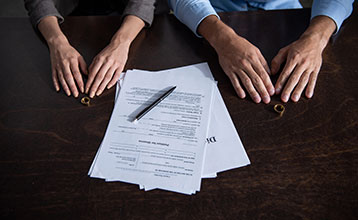Adopting a child is a legal process with significant consequences for the child, the biological parents, and the adoptive parents.
Adoption establishes a new legal relationship between the child and the adopting parents. At the same time, it severs the legal relationship between the child and the biological parents. All rights and responsibilities relating to the child are transferred to the adopting parents.
It’s a complicated process that can only be done legally through the Family Justice Courts. If you are seeking legal advice in this area, please do feel free to contact our adoption lawyers for a free initial consultation.
In Singapore, the process for adopting a child is regulated by:
- The Adoption of Children Act 1939;
- The Family Justice Act 2014;
- The Family Justice Court Rules; and
- Practice Directions.
The legal Process of adoption
The process will vary depending on whether the child is a citizen of Singapore or a foreign child. There are even more requirements if you want to adopt a child from the People’s Republic of China.
Pre- adoption briefing
Before you start the process of adopting a child, you need to attend a compulsory pre-adoption briefing. At this briefing, the process will be explained. It will cover information about your rights and responsibilities as an adoptive parent, post-adoptive services, and how to talk to the child about being adopted. The briefing is conducted by a Ministry of Social and Family Development accredited agency.
So, the very first step in the process is to register for this meeting with the MSF. The same process applies when you want to adopt a stepchild or a relative.
Home Study Report
If you wish to adopt a child in MSF care or a foreign child, you need a Home Study Report. This report is necessary to establish whether you are a suitable parent to adopt and raise an adopted child. Each MSF is valid for one adoption and valid for two years in which you can identify a child to adopt.
In other adoption cases, like adopting your stepchild or relative, the court may order a home investigation during the court process instead of a Home Study Report.
Identifying a child to adopt
After attending the briefing and obtaining the Home Study Report (where applicable), you can start identifying a child you wish to adopt. You can identify a child through family or friends, or you may want to consider a child in the MSF Fostering Scheme. If you wish to adopt a child from China, you cannot identify the child yourself. The China Centre for Children’s Welfare and Adoption (CCCWA) will identify a child and inform you when the child is available for adoption.
Obtain consent from birth parents or guardians of the child
Once you have identified a child, you must obtain the notarised consent of the biological parents or the child’s legal guardian. Consent includes relinquishing all their rights, duties, and obligations to the child once the adoption order is made.
If the child does not have a legal guardian, or the biological parents aren’t available or able to give consent, you must obtain consent from one of the following people:
- The person who has actual custody of the child.
- The person who is legally liable to support the child.
- The parents or guardian of the birth parent if the birth parent is under the age of 21 years.
If you cannot obtain the notarised consent of any of the required people, you can apply to the Family Court to dispense with the consent.
Obtain the child’s identification documents
You need to obtain the child’s birth certificate and passport (if the child is a permanent resident of Singapore).
Dependent’s Pass
If you wish to adopt a foreign child, you will need to apply for a Dependent’s Pass before bringing the child to Singapore. This pass allows the child to stay in Singapore until the adoption process is complete. To apply for a Dependent’s Pass, you need the notarised consent and the child’s identification documents. If necessary, the adoptive parents must first go to the child’s country and comply with any adoption requirements of that country before the MSF issues a Dependents Pass.
Once you have obtained all the above documents, you may approach the Family Court to apply for adoption.
Apply to the Family Court
You need to submit a series of documents when filing your application. These include:
- Originating Summons for Adoption.
- Adoption Statement.
- Consent to adoption and dispensation of services.
- Supporting affidavits.
Once the documents are filed, the Registrar will set a hearing date to deal with preliminary issues.
Guardian-in-Adoption (GIA)
At the first hearing, the court will appoint a Guardian-in-Adoption as the child’s temporary legal guardian under section 10(3) of the Adoption of Children Act. The role of the GIA is to protect the child’s legal interests in court. More interviews and background checks may follow. The GIA will conduct home visits and do whatever is necessary to prepare a complete report for the court. The adoptive parents need to be available, attend all interviews and cooperate fully with the GIA.
Court hearing
The court will consider all reports and affidavits and may summons any witness to attend the hearing. The court may request the biological parents to attend. The adoptive parents or their lawyer must attend. The primary considerations for the court are the child’s welfare and best interests.
What are the possible outcomes?
- The court may adjourn the proceedings for further evidence.
- If the court is satisfied that the adoption is in the best interest of the child, the court can grant an unconditional adoption order.
- The court may grant a conditional order. The adoption is granted, but there are specific terms and conditions.
- The court may delay the granting of a final order by making an interim order. The court places the child in the temporary custody of the adopting parents for a maximum of two years. Almost like a probationary period before the court grants final orders. The GIA remains the child’s legal guardian in that interim period.
- The court will dismiss the application if it is not satisfied that an adoption order will be in the child’s best interest.
Collect the child’s new birth certificate
If the adoption is successful, the child will receive a new birth certificate from the Immigration and Checkpoints Authority (ICA). If you adopted an overseas child, you need to apply to the ICA to obtain citizenship for your child. Adoption does not automatically grant citizenship to the child.
How long does the adoption process take?
A typical adoption takes 6-9 months, but it depends on the complexity and circumstances of each case. Adopting a child from another country takes longer since the adopting parents must also comply with all the adoption requirements of the foreign country before the process can start in Singapore. The process in Singapore is also time-consuming. Obtaining a Dependent’s Pass and Home study Reports takes time.
Contested adoptions take much longer.
The cost of adoption
Section 11 of the Adoption of Children Act makes it illegal to make or receive any payment for adoption unless sanctioned by the court.
The court may sanction the following:
- payment of medical fees;
- hospital bills;
- food and lodging for the birth mother and child;
- travel costs; and
- other costs to reimburse the birth mother.
There are administrative costs, including fees to notarise documents, professional agency fees, travel documents, birth certificates, etc.
Any payments made during the process must be revealed to the court with original proof of payments. The court may only legalise the adoption when payment to the birth parents is approved under section 5(c) of the Act.
Fixed, clear & transparent fees
With consent
$3,590
Dispensation of Service
$4,990
We are here to help
Who may adopt a child in Singapore?
Section 4 of the Adoption of Children Act stipulates that:
- The applicant must be at least 25 years old.
- There must be at least a 21-year age difference between the applicant and the child.
- Where two people apply, both must be at least 25 years old unless exceptional circumstances apply.
- For joint applicants, the parties must be married to each other.
- A single male is not allowed to adopt a girl unless exceptional circumstances justify the adoption.
- If you are married and want to adopt alone, you need the consent of your spouse.
- The applicant must be a Singapore resident or possess any other pass that the Family Court will deem to give resident status.
If the child is a relative of the applicant or there are special circumstances, the court has the discretion to grant an adoption order even if the applicant is less than 25 years old or the age gap is less than 21 years.
Singapore law has many safeguards in place to protect children eligible for adoption. These safeguards are necessary to protect the welfare of children and protect all parties against scams, but they also make the process more complicated.
If you are thinking of adopting a child, you should speak to a family lawyer with experience in adoptions. It is essential to follow the correct procedure and prepare all the necessary documents correctly. Following the correct legal process will ensure that you don’t waste any time. You can complete your adoption application successfully and as quickly as possible.


